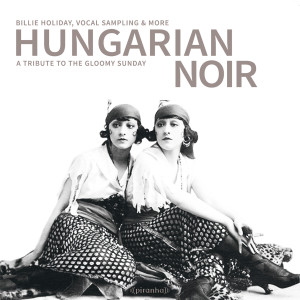 If you’re familiar with the song “Gloomy Sunday” it’s probably from Billie Holiday’s version of it, which popularized it in the U.S. in 1941. The BBC banned that record from the airwaves because its mood was deemed too somber for wartime, but that’s probably the only actual ban the song has ever been subjected to — and the Beeb allowed instrumental versions to air. Still, the urban legends persist about the song and its penchant to drive listeners to suicide .
If you’re familiar with the song “Gloomy Sunday” it’s probably from Billie Holiday’s version of it, which popularized it in the U.S. in 1941. The BBC banned that record from the airwaves because its mood was deemed too somber for wartime, but that’s probably the only actual ban the song has ever been subjected to — and the Beeb allowed instrumental versions to air. Still, the urban legends persist about the song and its penchant to drive listeners to suicide .
I was familiar with Holiday’s recording, from one of my dad’s old Big Band Era compilation LPs, and also with Artie Shaw’s beautiful rendition. I didn’t know anything of the history until this new compilation from Piranha Records came my way, collecting the original recording in Hungarian, plus Lady Day’s, and 10 more by artists from around the world. One song, 12 artists, collected by the world-music experts at Germany’s Piranha.
Originally composed by Hungarian pianist and composer Rezső Seress in 1933 as a lament for the hard times of the Great Depression and the rising winds of war, it was rewritten as a song of romantic heartbreak and thoughts of suicide by poet László Jávor. Budapest-based singer Pál Kalmár recorded the original version, which is included here along with Holiday’s recording with Teddy Wilson and his Orchestra on Columbia.
Beyond that are 10 more that cover the world. My favorite is the gentle acoustic “Triste Domingo” by Ukrainian-Agentinian accordionist Chango Spasiuk:
If you like the Eastern European hammer dulcimer called cimbalom as I do, you’ll appreciate the pensive but hair-raising take on “Szormorú Vasárnap” (that’s “Gloomy Sunday in Hungarian) by Cimbalomduó. That one is close to the spirit of the original. Much further afield is a version titled “Travessia” by Brazilian rapper GOG, joined here by musicians Pianola Duo. A Mozambiquan duo, Wazimbo and Yolanda Chicane turn in a mixed Portuguese-English version that’s pretty sublime, accompanied by tropical guitars and percussion.
Piranha has a number of Cuban artists on its roster, and the island is well represented here. The a capella group Vocal Sampling turns in an ethereal, almost classical take on the song while Manolito Simonet y su Trabuco turn it into a smooth salsa. And Glenda Lopez sings a dreamy Cuban pop version in English. From farther south, Colombian band Bambarabanda give it an Andean spin.
It’s a risk, putting a dozen versions of one song on an album. Hungarian Noir mostly succeeds on the strength of the sad but sturdy original tune, the deliciously blue lyrics and the soulful performances captured in the studios.
(Piranha, 2016)
